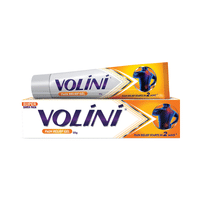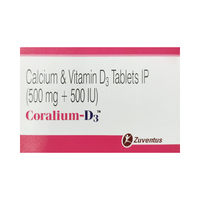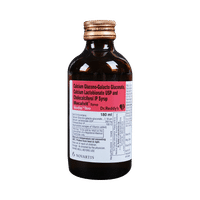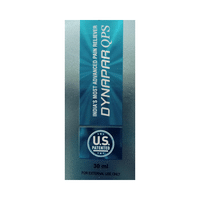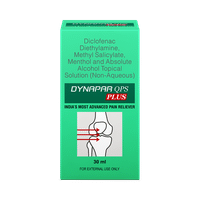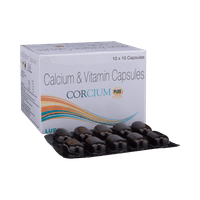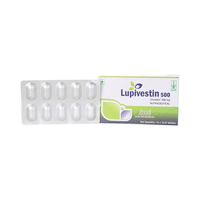Acon-T Tablet

Rs.134for 1 strip(s) (10 tablets each)
food interaction for Acon-T
alcohol interaction for Acon-T
pregnancy interaction for Acon-T
lactation interaction for Acon-T
food
alcohol
pregnancy
lactation
Acon-T Tablet is to be taken with food.
This will help to avoid acidity and heartburn.
None
This will help to avoid acidity and heartburn.
None
CAUTION
It is unsafe to consume alcohol with Acon-T Tablet.
UNSAFE
Acon-T Tablet is unsafe to use during pregnancy as there is definite evidence of risk to the developing baby. However, the doctor may rarely prescribe it in some life-threatening situations if the benefits are more than the potential risks. Please consult your doctor.
CONSULT YOUR DOCTOR
Information regarding the use of Acon-T Tablet during breastfeeding is not available. Please consult your doctor.
CONSULT YOUR DOCTOR
SALT INFORMATION FOR Acon-T
Thiocolchicoside(4mg)
Uses
Thiocolchicoside is used for muscle relaxation. It relieves painful spasms of the skeletal muscles.
How it works
Thiocolchicoside is a muscle relaxant. It works on the centres in the brain and spinal cord to relieve muscle stiffness or spasm without reduction in strength. This improves pain and movement of muscles.
Common side effects
Sleepiness, Diarrhea, Itching, Allergic reaction, Urticaria, Seizure, Hepatitis (viral infection of liver)
Diclofenac(50mg)
Uses
Diclofenac is used for pain relief. It relieves pain in conditions like headache, mild migraine, muscle pain, dental pain, rheumatoid arthritis, ankylosing spondylitis, osteoarthritis, or painful menses.
How it works
Diclofenac is a non-steroidal anti-inflammatory drugs (NSAID). It works by blocking the release of certain chemical messengers that cause pain and inflammation (redness and swelling).
Common side effects
Nausea, Headache, Dizziness, Vomiting, Flatulence, Constipation, Diarrhea, Abdominal pain, Dyspepsia, Gastrointestinal bleeding, Gastrointestinal ulcer, Rash, Application site irritation, Injection site pain, Chest pain, Hypersensitivity, Angioneurotic edema, Platelet disorders, Convulsion, Visual disturbance, Ringing in ear, Colitis, Stevens-Johnson syndrome, Myocardial infarction
SUBSTITUTES FOR Acon-T
38 Substitutes
38 Substitutes
Sorted By
 Rs. 241.50pay 79% more per Tablet
Rs. 241.50pay 79% more per Tablet Rs. 197pay 43% more per Tablet
Rs. 197pay 43% more per Tablet Rs. 130save 6% more per Tablet
Rs. 130save 6% more per Tablet Rs. 211pay 53% more per Tablet
Rs. 211pay 53% more per Tablet Rs. 136.50save 1% more per Tablet
Rs. 136.50save 1% more per Tablet
Expert advice FOR Acon-T
- Thiocolchicoside provides relief from rigidity, tension and stiffness in muscles (spasticity) that may occur due to various conditions affecting the nervous system.
- Take it with or after food or a glass of milk.
- Thiocolchicoside may cause dizziness or sleepiness. Do not drive or do anything requiring concentration until you know how it affects you.
- Avoid consuming alcohol when taking Thiocolchicoside as it may cause excessive drowsiness.
- Inform your doctor if you are pregnant, planning to conceive or breastfeeding.
- Do not stop taking it suddenly without talking to your doctor if you've been on it for a long time.
Frequently asked questions FOR Acon-T
Thiocolchicoside
Q. What is Thiocolchicoside?
Thiocolchicoside is a muscle relaxant which is used in adults and adolescents from 16 years onwards as an add-on treatment for painful muscular contractions. It is to be used for acute conditions related to the spinal column.
Q. Is Thiocolchicoside a steroid?
No, Thiocolchicoside is not a steroid. It is a naturally occurring glucoside from a plant source.
Q. Thiocolchicoside is derived from which plant?
Thiocolchicoside is a semi-synthetic derivative of naturally occurring compound colchicoside from the plant Gloriosa superb.
Diclofenac
Q. Is Diclofenac a good painkiller?
Diclofenac is effective in relieving pain and inflammation. It is used for various sorts of pain such as sprains, strains and other injuries. It is also helpful in various types of arthritis, gout, pain and inflammation following surgery.
Q. Is Diclofenac a narcotic?
No, Diclofenac is not a narcotic. It belongs to non-steroidal anti-inflammatory drugs (NSAIDs) group of medicines.
Q. Does Diclofenac get you high?
No, Diclofenac does not get you high. It does not have an abuse potential (drug-seeking behavior) and does not cause physical or psychological dependence. However, if you do not feel well, consult your doctor.














